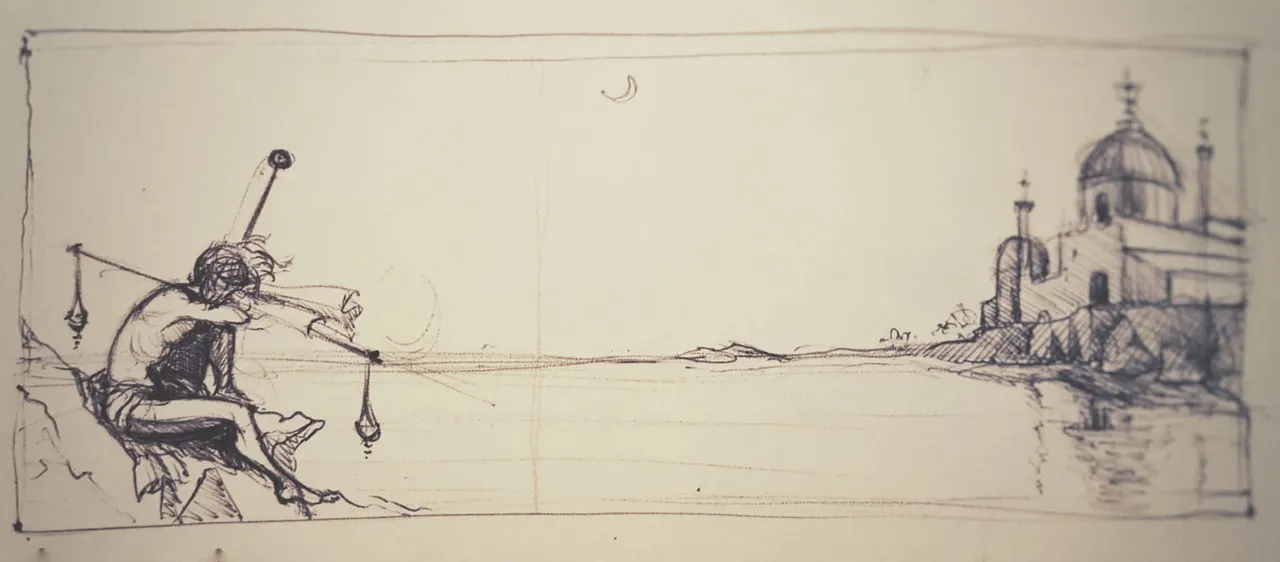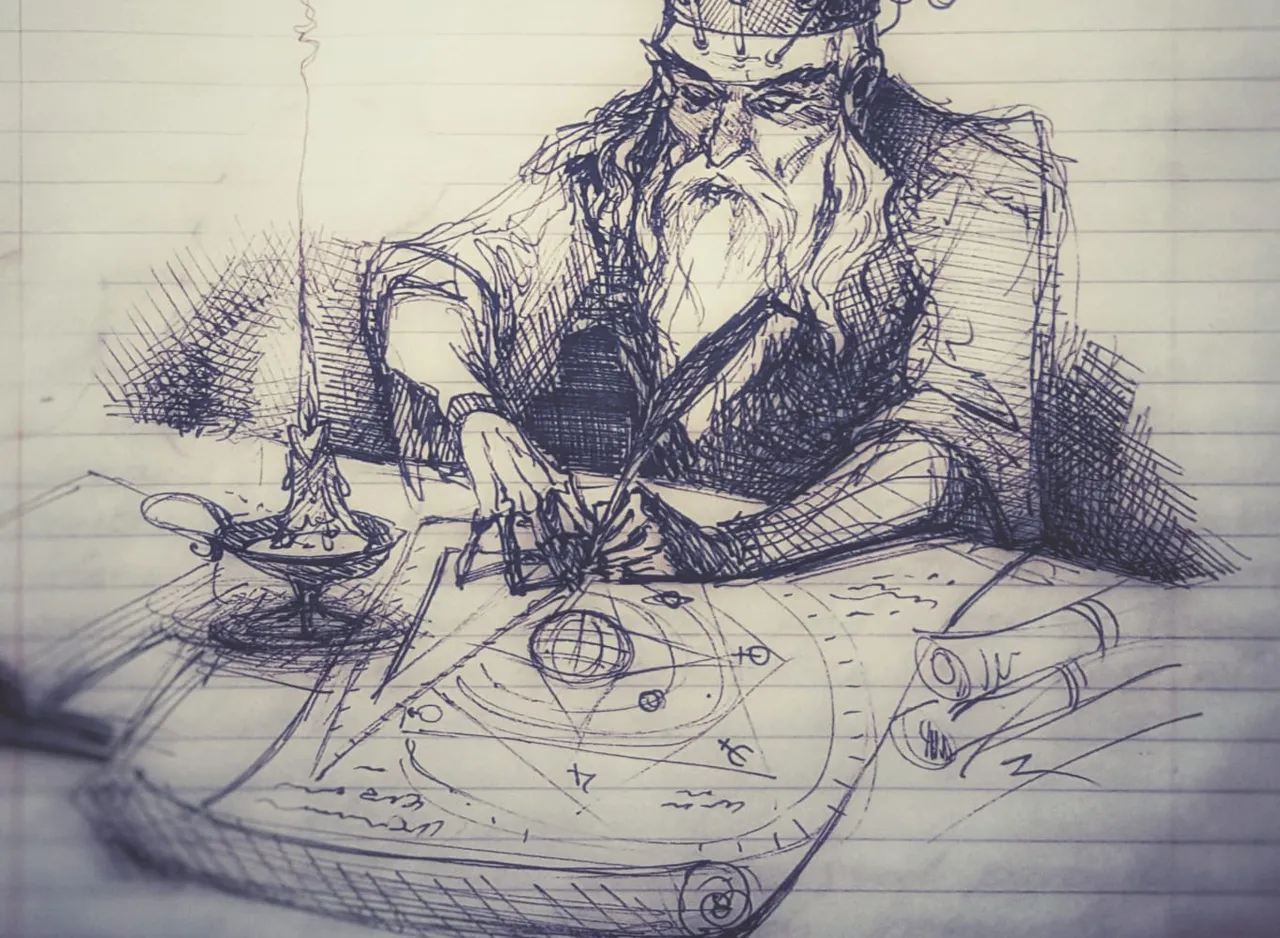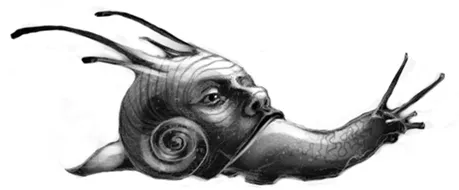
"Choosing to have Fate", pen on paper
Reader, beware: some slippery slope ahead.
I often wonder about how we come to hold certain ideas about how the world works or ought to work... How do we choose which believes are trustworthy and which ones should be dismissed? Why do we arrive at such polarizing conclusions about reality?
I won't pretend to be able to answer these questions with certainty, but I've attempted to analyze my own mind; to identify my thought processes and hone in on healthy skepticism, while still letting my imagination run wild. I tried to cleanse the mind from baseless biases, irrational superstitions and naive wishful thinking, all while still upholding my idealistic hopes for the future of our tribe and not falling into cynical nihilism, which strangely feels very comforting at times. So I'm here to share my understanding of the process of evaluating the 'truthiness' of ideas.
So, how do we come to trust ideas that enter our minds?
Frankly, I think that the biggest flaw in our thinking is that we tend to get emotionally attached to ideas. Somewhere between being open-minded and somewhat naive, ideas sneak into our mind and plant themselves deep in the gaps of our knowledge - making us feel enlightened, linking some missing bits, all while our confirmation bias begins to reinforce these believes by realigning what we perceive about reality to fit the desired narrative.
We don't always choose the believes we adopt (or rather what believes adopt us); By luck or misfortune of being born in a certain place and time some people are exposed to ideas through cultural conformity and become conditioned to view the world through a particular lens. They don't always even realize that there are other options, other contrasting views out there. Ideas often thrive in closed groups because groups create a barrier of tradition and rituals to protect ideas and disincentivize any inquisitive thinking. This doesn't apply to only religious indoctrination, but to any believes that thrives in tight communities.
Others accept ideas because these ideas help alleviate the pain of the Human Condition, for example: a belief in an afterlife helps alleviate the ever present fear of death (our own, and of those we love). Or for instance: the idea of Fate or submission to greater entity, gives us a sense of meaning and comfort, in light of the difficult choices and circumstances that we face throughout our lives.
Some ideas come through personal experience, which often also involves confirmation bias: A person that is susceptible to believing in alien abductions, might be more likely to spot UFOs - just like Honda Accord drivers see Honda Accords everywhere they go. Having a confirmation bias might cause some people to become more convinced in their belief based on anecdotal personal experiences.Though personal experiences can have a profound effect on the person going through the experience, their idea about what happened might be perceived from a pre-existing notion about reality.
Another way that we come to trust ideas is through imploring the virtue of Faith. When we spot inconsistencies in our believes, or contradictions of the believes with reality, we resort to Faith. This is where our idealist mind betrays our capacity for rational thinking - we think that there is a special virtue to having blind loyalty to an idea. We apply this flawed thinking not only towards supernatural believes, but also to ideas of national patriotism and even Ponzi schemes. The problem with Faith, is that while we might evoke it to justify our own believes, we ourselves rarely accept it as a credible source for any kind of knowledge when listening to others (especially if they contradicts our own believes).
Finally, we come to trust ideas after a critical examination of the evidence that supports it. The most trusted method to accepting claims or believes is with credible evidence and logical reasoning. Don't get me wrong, I'm not saying "stop being imaginative, or discovering new patterns", it's fine to be drawn to mysticism and come up with surreal propositions - that is how art is born, and I don't deny the possibility that some greater insight might be hiding amidst the motions of the planets and stars... What I'm emphasizing here are believes about reality that dictate our actions. Therefore, it is in our best interest to perceive reality as accurately as possible, and believe in as many True things as possible.

"Mag", pen on paper
How to debug your own mind:
First of all we should strive to adopt a default skeptical approach, and distance our sense of 'self' to avoid confusing 'ideas/ideologies' with 'identity', since uprooting ideas that are attached to one’s identity can be psychologically and emotionally painful. By creating a mental barrier between our perceived intrinsic self and the ideas that float in our mind, we can begin to divest our ego from our ideas.
Learn to love to be proven wrong. We'd think that smart people have a built-in immunity against irrational believes, that their intelligence should keep them aware of implanted ideas. But often times their own confidence in their intelligence becomes a ripe ground for questionable ideas. Articulate people, who hold social positions should strive to re-examine their believes as often as possible. In reality though, they tend to double down to save face, and thus keep propagating the believes they hold onto others.
Therefore, adapting a mindset that we can be wrong, liberates our ego from being threatened when discovering the fallacy of our own believes.The path to objectivity : when we let go of a dearly held believe or a deeply set idea, we begin to develop our critical thinking skills and become more immune to accepting a new proposition without proper examination. Some might say that this is "close minded", but in reality we simply have implemented better filters to assess information that can at times masquerade as some kind of esoteric, 'insider' knowledge.
Not all knowledge is "Justified true belief" as Plato once described it. It is even possible to develop a whole field of academic tradition based on confirmation bias (seeing patterns that only confirm one's narrative). There are tomes upon tomes of scholarly studies about Spiritualism, Metaphysics, Astrology and many other fields of study that have no scientific backing. Yet they are considered to be 'knowledge', because they each contain valuable insight into how our mind constructs elaborate patterns from observing the natural world and ascribe supernatural-laws and agency to rule it. These teachings present a unique lens through which mystics hope to get a glimpse onto the realm of 'beyond the material' in order to learn more about the meaning of the natural world. Though these fields of knowledge have been successfully contested by science many times, they continue to thrive and play a big role many peoples' lives.
We should also try to re-examine the ideas and the believes that we already dismissed. Often times, by revisiting already rejected ideas we find parallels to the ideas we deem true and hold dear. Being exposed to as many opposing ideas as possible will inoculate our mind from a slightly mutated versions of the same idea.
White belt to black belt, and back to white.
My goal in writing this is to share what I've learned from my personal journey into understanding Epistemology - How we come to know things. And most of all I hope to encourage anyone reading this to go on their own journey of examining their mind -to challenge the ideas that seem to grip at their very identity, and to approach all knowledge with a pinch of healthy skepticism, keeping in mind that deeply held ideas dictate our day-to-day behavior and attitude towards others.
In the next post I will continue to expand this topic and will attempt to list the tell-tale signs of potentially harmful ideas, as well as defend their practical application.
So please stay tuned as the slope turns into a steep climb :)

A N K A P O L O